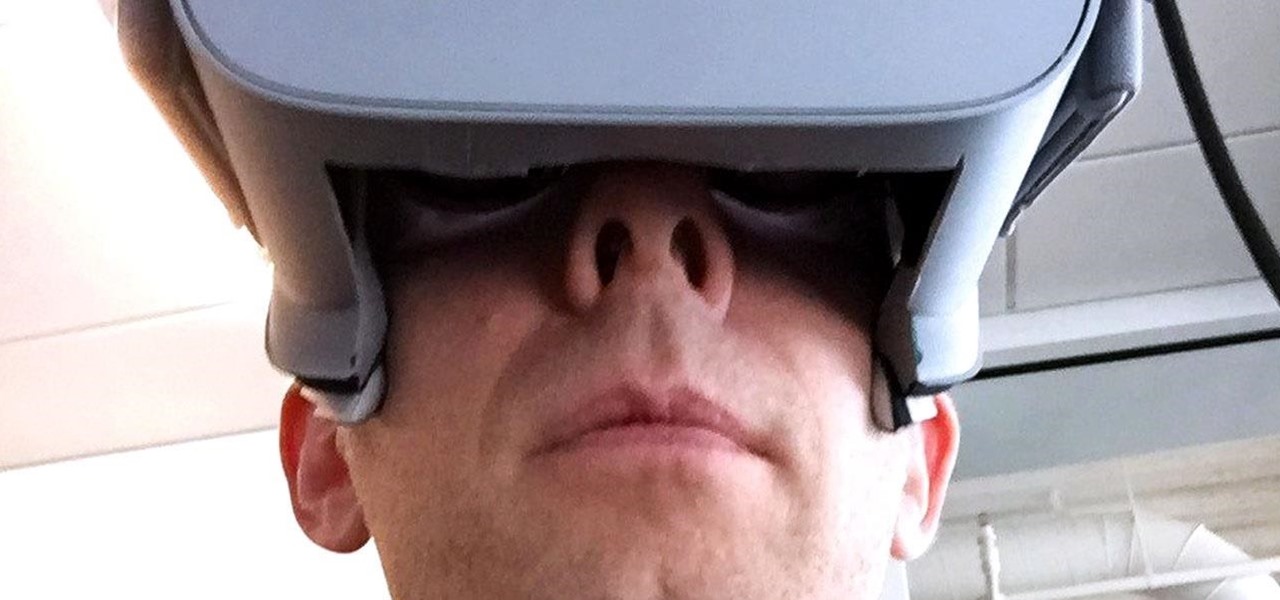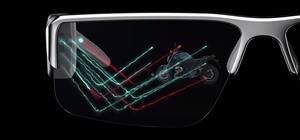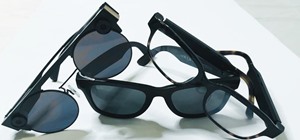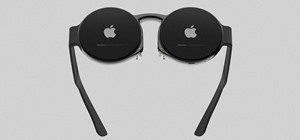The worlds of augmented reality and virtual reality are closely linked in many ways. That means it's smart for AR insiders to keep a close on new developments in VR. If you have been paying attention, you know that Oculus CTO John Carmack is one one of the most important thinkers in the VR space.
Well, the mainstream public got a rare display of some of that thinking — which included some strong opinions on AR — from one of the most popular podcasts on the planet.
- Don't Miss: I Spent a Full Day Working in the Magic Leap One & Discovered the AR Office of the Future
Veteran gamers know Carmack from his pioneering game industry work as the co-founder of id Software and as the lead programmer on historic games including Doom, Wolfenstein 3D, and Quake. But Carmack's current obsession is firmly rooted in the world of VR. His passion is most recently embodied in the form of the Oculus Quest, a tetherless VR headset that has earned rave reviews from even the most VR-skeptical tech reviewers.
On Wednesday, Carmack visited Joe Rogan, a major podcaster, comedian, and veteran UFC commentator who is also a pretty passionate VR nerd, at his Los Angeles studio to talk tech. Predictably, most of the conversation focused on gaming and VR, but at one point during the discussion, Carmack offered his thoughts on AR.

Rogan's interview with Tesla and SpaceX founder Elon Musk hit 25 million views. His normal videos rack up between 1 and 5 million views, so this latest video will probably the biggest mainstream discussion of the technical aspects of AR and VR to date.
This conversation is particularly important because Facebook, the parent company of Oculus, has repeatedly stated that it's working on AR smartglasses. However, based on his comments, Carmack seems laser-focused on VR, with AR taking a backseat in terms of his near-future viewpoint.
"In terms of augmented reality, we all buy into this future vision of a world where you've got something that feels like sunglasses that you put on and you can pull up all your information, and maybe it clouds over into a virtual experience. There are still fundamentally unsolved problems in display technology to do the magic thing that we would really like from all of that," said Carmack. He was responding to a question about the Oculus Quest's Guardian see-through mode (see image below) possibly becoming a full AR wearable solution in the future.

"What you saw in the Oculus Quest when you saw the world through that (black and white Guardian see-through mode), obviously it's low-res, it's low frame rate, it's not good, but we could fix all that," said Carmack.
"You could say, 'Let's go high-res color, high refresh rate,' and you could make what we'd call a pass-through, rather than a see-through augmented reality system. And we could absolutely build that technology, and we could make that pretty good. But then it comes down to: What do we expect the user story to be? If you had something like that, would you be wearing this boxy thing out into the world? Riding the bus with it, doing different things? We have a little bit of a hard time seeing the socially acceptable way that you're running around, going about your life with sort of a shoebox-sized thing on your head."
This comment would appear to fly in the face of all the discussion at Oculus events one the past few years in which the company has reviewed their research focused on upcoming AR smartglasses. Whether Carmack's comment indicates that Facebook AR smartglasses are further away than we think, or that he simply isn't directly involved in that area of Facebook's research, he nevertheless has a lot to say on the topic.
"If we get down to the point where it's something like swim goggles or very thin sort of ski goggles, something that's half or a quarter of the volume of what we've got here [with Oculus Quest], would that be something that people would want to wear for long periods of the day? I lean towards no, but we haven't built it so we don't know yet," said Carmack.
"And there's the question of what you want to do with that in the augmented reality world. People make these interesting little demos where, alright, we've mapped the world in this incredible detail [and now] we can flood [the real world] with [virtual] water, we can do a simulation of all of this, isn't this cool? Or we can re-skin your world as Bilbo Baggins' hobbit hole or something. I am skeptical of the broad utility of a lot of these things."
Going into specifics, Carmack delves into the world of iOS and Android mobile AR experiences.
"Today, there's a ton of AR apps you can get on your cell phone, you can hold your phone up and kind of look at things, and interesting little things happen," said Carmack. "Pokémon GO is an interesting thing that actually has more of a point for it, and the augmented reality side of it is very small. But the things that actually augment onto the world, I haven't seen anything that I've found really compelling. They're interesting technologies, but I'm still betting more on the fully immersive experiences."
Ok, so we know what Carmack thinks about mobile AR and the prospect of future AR wearables, but what about the very real and very useable AR wearables of today? Well, that's when Carmack takes his first real shot at criticizing a specific brand — Magic Leap.
"The problem with Magic Leap was… a lot of the augmented reality videos, you wind up with things that are synthetically created and they're not really what the product does, and they oversell what the actual capabilities are," said Carmack. "And that's a slippery slope. You want to sell your vision in some way and you're very rarely showing exactly what the product does. But they showed something that led people to believe it was much more than it actually was."
That last comment seems a little out of date and somewhat unfair to Magic Leap since that was almost five years ago. New apps from the company clearly show advanced graphics and interface interactions. But it's true that some of what Magic Leap promised in my early conversations with the company back in 2015 isn't what made it to market.
Nevertheless, Carmack does see the utility in high-end AR devices like the HoloLens, even though he doesn't sound like a huge fan of Microsoft's device, either.
"Even before Magic Leap, Microsoft had been selling the HoloLens for a few years, and it's turned out that they have some real wins in some enterprise applications for training and for people like working on jet engines and stuff," said Carmack.
"It's an expensive product, it costs thousands of dollars for these things. You're not gonna spend that to get a fairly narrow field of view. It's not a great gaming experience. They have a few things that you can do with that, but if it's something that helps you to do your job and you're a high paid specialist or something, it's a tool, it's something that has value there. That's the state that we are in with AR today. There are some devices that are providing some legitimate value, but they're essentially like socket wrenches, they're a tool you get when you need to do a specific job."
Of course, there are a number of AR industry players who might disagree with Carmack, and point out that his mobile VR mission has clouded his vision. Still, it's worth examining what such a high-level technology expert like Carmack — who has repeatedly shipped real, successful products and is in touch with what it takes to win consumers over — has to say when it comes to the still-developing story of AR.

"The world we want to be in is [AR smartglasses are] something you put on and it's essentially a part of you. I want something where I roll out of bed and instead of grabbing my normal see-through glasses, I grab my augmented reality glasses and then they do something useful for me for 16 hours. Two hours is not enough," said Carmack.
"There are a few companies that have made things that are [in a] sunglasses form factor that can do some little things with the display, but they run out of battery very quickly. But you want something that you can use all day long. Something that is so automatic… like [in the way that] cell phones are augmentations our power right now. The fact that we can go look anything up super quickly… if you have that ability [with future AR smartglasses] and it doesn't even mean pulling your phone out of your pocket if you can access information just by… potentially even just by thinking about it."
Here is where, to the casual observer, it might sound like Carmack is talking science fiction, but he isn't. Facebook's research team, as well as founders like Elon Musk, are already working on brain interface solutions that will likely be in widespread use in the next 10-20 years.
"There is work serious work going on about brain-computer interfaces. You could imagine having these glasses, and even if it was all it did was, say, zooming in. Say it was just super-vision. If you had the ability to just think, "zoom," and it would zoom in for something, that would be a product right there," said Carmack.
"It could grow into this augmented world and annotate everything. But I'm a believer in the sense of giving you a new power, giving you a new physical ability. It needs to be ultra-intuitive, I mean maybe there is something where [you're just] tapping your wrist, or some super, super-fast, low latency interaction. [The] ideal would be something like [a] brain-computer interface. Maybe it's some eye-tracking, or even teeth clicking. If it just became so natural that you turn your head to go look at something, [and] if you just do this [future interface] thing, and you zoom in on it, [and] you get more information, that would be pretty magical, that sense of augmented human capability."
- Don't Miss: Oculus Rift Creator Slams Magic Leap One as 'Tragic' & Magic Leap's CEO Quickly Hits Back
If you're a VR devotee, everything Carmack is saying is great news — VR is getting cheaper, better, and even more mobile. But if you're knee-deep in AR, you know that things are moving so fast the even the best technologists probably have at least a couple of blind spots regarding the still-unfolding story of AR.
Therefore, predicting AR's future is almost impossible, even for someone as brilliant as Carmack. His narrow focus on VR within the walls of Facebook's Oculus is likely influencing his take on the state of AR. On the other hand, if you're an AR founder, Carmack's comments probably just gave you a bit of rocket fuel. In the tech world, whenever someone says something is possibly too difficult to make work well anytime soon, there's always someone ready to prove them wrong. The fun is seeing who turns out to be right.
You can watch the entire conversation, in which Carmack also talks about commercial space missions, artificial intelligence, and his meetings with Elon Musk, in the video below.
Just updated your iPhone? You'll find new features for Podcasts, News, Books, and TV, as well as important security improvements and fresh wallpapers. Find out what's new and changed on your iPhone with the iOS 17.5 update.























1 Comment
Carmack has a lot of personal opinions about technology & the world in general that he often states with passion and integrity.
Share Your Thoughts